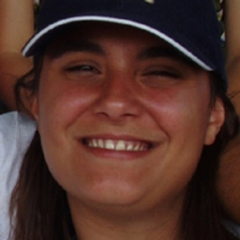Computational Molecular Evolution
13–24 May 2019
Wellcome Genome Campus, UK
Hands-on training in the latest methods and skills for molecular evolutionary analysis of sequence data
Summary
Run biennially at the Genome Campus (and jointly with EMBL-EBI) this hands-on computational course aims to provide early-career stage researchers with the theoretical knowledge and practical skills to carry out molecular evolutionary analyses on sequence data. Instructors teaching molecular evolution may also benefit from this course by refreshing their knowledge of cutting-edge analytical methods in the field.
In addition, the course will offer a unique opportunity for direct interaction with some of the world-leading scientists and authors of famous analysis tools in Evolutionary Bioinformatics.
The demand for such training is large and growing, as are the sequence databases and researchers’ awareness of the important insights that can be gained from phylogenetic and molecular evolutionary techniques.
Target audience
Experience from previous years has led to preference being given to candidates who:
- are doctoral candidates in the early to middle stages of their thesis research
- already have some familiarity with phylogenetic methods (i.e. have already used some of the relevant tools)
- have already collected/assembled a molecular sequence dataset to analyze in their work
- have experience of working in a Unix/Linux command-line environment
We will also select a small number of participants that already work in bioinformatics labs, to intensify collaboration between early career stage biologists and bioinformaticians. Applicants from labs with a strong focus on computational molecular evolution methodology need to carefully outline their motivation for attending the course in this context, since they have ready access to expert supervision and are likely to be very skilled already in the topics we teach, or are in the course of becoming very skilled therein.
The course is also suitable for established researchers who would like to refresh their memory of modern statistical methods for phylogenetic analysis of genomic sequence data and to interact with developers of such methods.
Programme
The extensive programme comprises a mixture of lectures and computer practicals covering the following topics:
- Data retrieval and assembly
- Alignment techniques
- Phylogeny reconstruction (including maximum likelihood and Bayesian methods)
- Hypothesis testing
- Population genetics approaches
- Protein and nucleotide sequence analysis, including NGS data (Please note however that the course focuses on NGS analyses for molecular evolution, we do not cover traditional NGS analyses e.g., QC, read mapping, variant calling, assembly etc.).
Additional Sessions
There will also be the opportunity for participants with programming experience in bioinformatics to participate in 2–3 ad hoc sessions on specific coding-related (e.g., C++, R, github) or theory-related (e.g., terraces in tree space) topics that will emerge during the course ‘hands-on’ coding sessions. These will be led by the course instructors or teaching assistants.
Learning Outcomes
The overall objective is to raise the standard of research that uses methods and approaches from the field of molecular evolution, by providing high-quality, in-depth, face-to-face training on this topic for as many researchers as possible. By the end of the course participants should be able to:
- Have an improved theoretical understanding of relevant methods, thus improving their ability to critically interpret and apply relevant techniques to their studies
- Interpret evolutionary trees and recognise / discuss the power of molecular phylogenies for understanding real-world biological questions, relating to evolutionary history, current-day biodiversity and future diversification of living organisms
- Browse, query and extract genome sequence data from public databases, and create multiple sequence alignments.
- Employ appropriate bioinformatics skills that also allow for the analysis of large genome-scale datasets, including command line use of specialist software, simple scripting, and compiling programs and submitting jobs on multi-core servers and compute clusters.
- Select and apply appropriate commonly used phylogenetic software packages (such as PhyML, RAxML, PAML, MrBayes, BEAST) to infer phylogenetic trees, estimate divergence times, and test phylogenetic hypotheses.
- Understand and explain the underlying principles of major phylogenetic methods such as distance matrix-based, maximum likelihood, and Bayesian methods, including the MCMC method.
- Understand and explain the use of Markov models of nucleotide, amino acid and codon substitution, hypothesis testing using the likelihood ratio test, coalescent and multispecies coalescent models in species tree estimation and species delimitation.
- Apply likelihood ratio tests to infer the existence and location of molecular adaptation affecting protein-coding genes.
Instructors and speakers
Lead Instructors/Organisers

Aglaia (Cilia) Antoniou
Institute of Marine Biology, Biotechnology and Aquaculture (IMBBC), Hellenic Centre for Marine Research (HCMR), Greece

Adam Leaché
University of Washington, USA

Alexandros Stamatakis
Heidelberg Institute for Theoretical Studies, Germany

Ziheng Yang
University College London, UK
Instructors and Assistants
Sandra Alvarez Carretero Queen Mary University of London, UK
Maria Anisimova Zurich University of Applied Sciences ZHAW, Switzerland
Joelle Barido-Sottani ETH Zurich, Switzerland
Bastien Boussau LBBE-UMR-CNRS, France
Lucas Czech Heidelberg Institute for Theoretical Studies, Germany
Xijun Jiao University College London, UK
Emy Karameta University of Athens, Greece
Brian Moore University of California Davis, USA
Benoit Morel Heidelberg Institute for Theoretical Studies, Germany
James Pease Wake Forest University, USA
Bruce Rannala University of California Davis, USA
Ben Redelings Duke University & University of Kansas, USA
Asif Tamuri University College London, UK
Jeff Thorne Genetics and Statistics Departments, North Carolina State University, USA
Tom Williams University of Bristol, UK
How to apply
Prerequisites
Programming experience is not required, although knowledge of R and experience in a scripting language such as python or perl will be very useful. Candidates without prior experience with the Unix/Linux command line will be required to acquire these skills prior to the course. Training materials and exercises for improving Unix/Linux skills of participants will be provided before the course.
How to Apply
Please complete the online application form. Places are limited and will be awarded on merit. If you have any problems with the online application process, please contact us.
Please note: Applications must be supported by a recommendation from a scientific or clinical sponsor (e.g. supervisor, line manager or head of department). A request for a supporting statement will be sent to your nominated sponsor automatically during the application process. Applicants must ensure that their sponsor provides this supporting statement by the application deadline. Applications without a supporting statement cannot be considered.
Travel visas
Successful applicants will be provided with a support letter for their visa application, if required.
Please visit the following websites for further information on visiting the UK:
Cost
| Cost | Accommodation / meals | |
| *Course fee | £1800 | This is a residential course and the fee includes all accommodation and meals. |
*The course fee is subsidised and applies to non-commercial applicants. Please contact us for the commercial fee.
Bursaries
Limited bursaries are available (up to 50% reduction on the course fee) and are awarded on merit. If you would like to apply for a bursary, please complete the bursary section of the online application form.
Where there are many bursary applications, the selection committee may issue smaller amounts.
Bursaries can be applied for as part of the course application form. Applicants will be notified of a bursary award along with their place on the course, usually within one month of the application deadline. The decision of the selection committee is final.
Please note that both the applicant and sponsor are required to provide a justification for the bursary as part of the application.
Additional funding opportunities
Visit our support page for additional financial support currently available.
Accommodation services phishing scam – please be vigilant. More information.
Testimonials
Feedback from the 2017 course at the Wellcome Genome Campus:
“Loved the course. Was the best part of my PhD so far.”
“I would like to express my greatest thanks to all of the course organisers, instructors and TA’s . Your support dedication and work has helped me with my research more than you can know. Thank you!”
“Just to say a big thank you to the lecturers and teaching assistants – you guys are awesome!”
“Thank you – this has been an incredibly useful course, I learnt so much. The enthusiasm, knowledge and experience of all presenters was fantastic”
“This course has been one of the highlights of my PhD. It is difficult to imagine how it could be improved. The teaching, facilities and food far surpassed my expectations.”
“This course was one of the best teaching events I ever attended. Everything was done really professionally. I am truely impressed by the organisation and dedication of the faculty.”
“You have somehow managed to gather an amazing assortment of people who are not only experts in their field but are super friendly and down to earth.”

